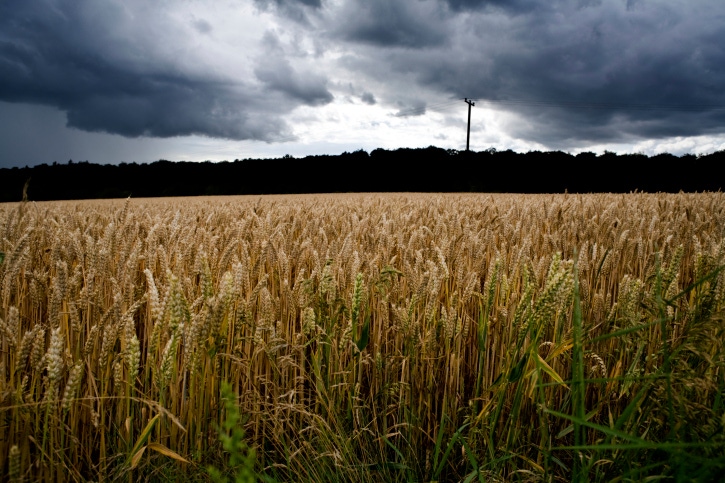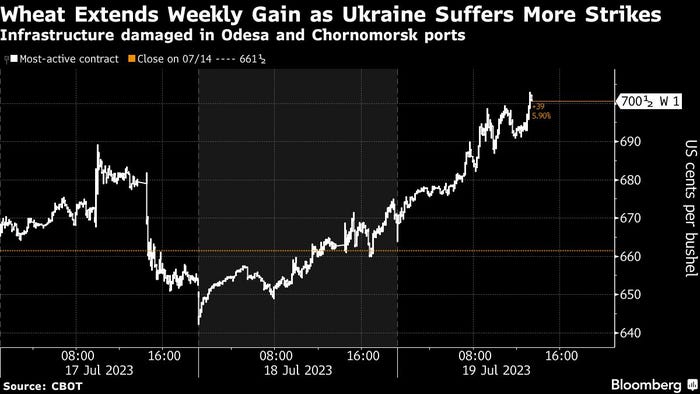Wheat soars to three-week high after Ukraine ports attacked
Two of the three ports that had been opened under the Black Sea grain deal battered.

By Megan Durisin and Aliaksandr Kudrytski
Wheat and corn rallied to three-week highs as another wave of Russian attacks battered southern Ukraine following the collapse of the grain-export deal.
Shelling on Tuesday and Wednesday hit agriculture terminals in the ports of Odesa and Chornomorsk, according to the agriculture ministry. The damage knocked out a “significant part” of Chornomorsk’s grain-export infrastructure and destroyed 60,000 tons of grain there.
The ports were two of the three that had been opened under the Black Sea grain deal, which Russia exited earlier this week, a year after it was originally agreed. The strikes highlight security risks and could weigh on plans by officials to continue shipments without the pact in place.
The attacks “further underline the warnings issued by Moscow,” which ended its safety guarantees for shipping in the region when it pulled out of the deal, Paris-based adviser Agritel said in a note. Facilities of major traders including Viterra and Kernel were hit, the Ukraine government said.
Wheat prices jumped as much as 4.8% in Chicago.

“Russian terrorists absolutely consciously aimed at the grain deal infrastructure,” Ukraine President Volodymyr Zelenskiy said on Telegram after a meeting with key officials on Wednesday.
Kernel’s shares plunged after the damage was reported.
Zelenskiy instructed Ukraine’s military to boost the defense of port infrastructure and for his diplomats to step up contacts with foreign partners to try to continue exporting the nation’s grain and put more pressure on Russia. The U.S. has said shipping escorts are not an option.
Ukraine is studying options to get the grain corridor working again, including possible convoys for vessels, Interfax reported, citing Zelenskiy. He said shipowners are ready to use it, but he is awaiting the military and infrastructure ministry’s response.
In tandem, eastern European Union nations are seeking to extend a ban on Ukrainian grain imports.
Chicago crop futures also got a boost from drier weather in parts of the U.S. growing belt, which could stress developing corn and soy fields. The northwest Midwest has lacked rains, and moisture will decline in central areas, forecaster Maxar said in a report. Parts of Canada are also dry, and heat is gripping southern Europe.
Prices
September wheat futures in Chicago were up 4.5% at $7.01 a bushel as of 7:30am local time. Prices earlier reached the highest for a most-active contract since June 28.
Corn gained 4.2%, while soybeans traded 2% higher.
--With assistance from Áine Quinn, Daryna Krasnolutska, Keira Wright and Piotr Skolimowski.
© 2023 Bloomberg L.P.
About the Author(s)
You May Also Like


.png?width=300&auto=webp&quality=80&disable=upscale)
